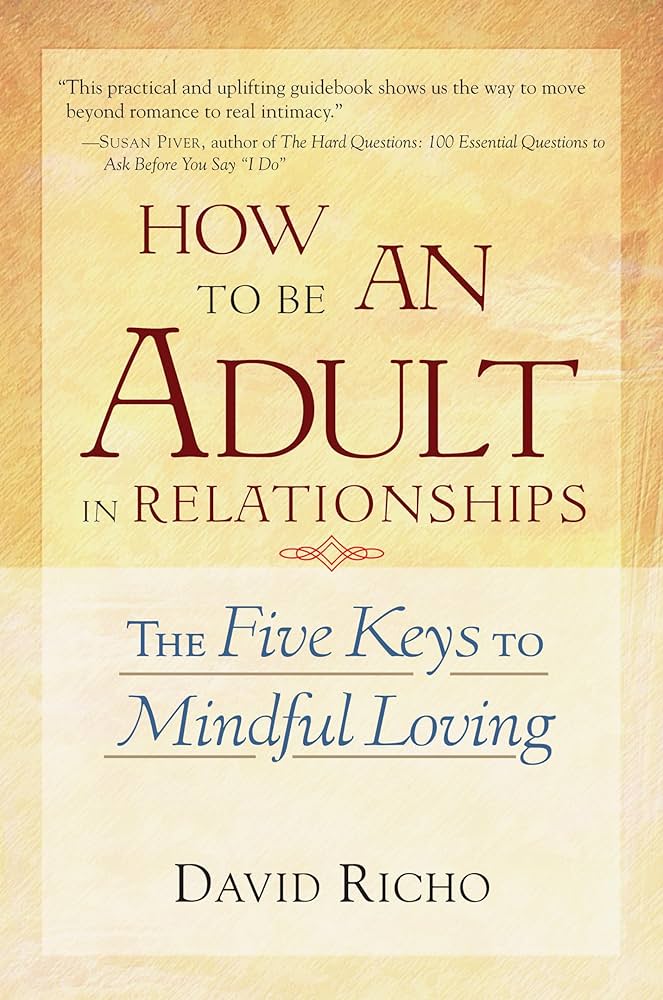Harville Hendrix’s “Getting the Love You Want” is a relationship roadmap. He argues that childhoods shape our love lives, and we often seek partners who mirror our caregivers. This leads to repetitive patterns. Hendrix offers the Imago Dialogue as a tool for open communication and suggests focusing on empathy and shared responsibility.
Reading this book felt like stepping into a journey of self-discovery and growth, not just for me but for my relationship as well.
Childhood Wounds and Unconscious Patterns
Harville Hendrix says that our early childhood experiences shape our adult relationships. If, for example, you felt neglected or criticized by your parents, you unconsciously seek out partners who replicate those feelings, hoping to finally “fix” what was broken in your past.
This unconscious drive to heal old wounds through current relationships leads to conflicts and dissatisfaction, as partners struggle to meet needs that were never adequately met in childhood.
I’ve often observed clients attract partners who mirror their caregivers, almost as if they’re subconsciously trying to rewrite their childhood narratives
Critique: Overlooked the Mechanics of Healing
While acknowledging the impact of childhood experiences, the book could explore more deeply the specific mechanisms by which these wounds manifest in adult relationships. It can also benefit from examining the role of resilience and individual agency in overcoming these patterns.
The Imago Concept
The book introduces the concept of the Imago, an unconscious image of an ideal partner. According to Hendrix, Imago Therapy is based on the idea that we unconsciously choose partners who reflect the positive and negative traits of caregivers. This “imago,” or image of our ideal partner, is formed in childhood and plays out in adult relationships, often leading to conflicts.
Hendrix believes that by bringing these unconscious patterns to light, couples can better understand the roots of their issues and work towards healing.
Discovering Imago Relationship Therapy through Getting the Love You Want was enlightening. As I read, I started reflecting on my relationships and realized how many conflicts stemmed from unaddressed issues from my childhood
Critique: Ignored Complexities in Partner Selection Beyond the Imago Theory
While the concept of the Imago is insightful, it oversimplifies the complexities of partner selection. Not all relationships are rooted in unresolved childhood issues, and the idea that we are primarily driven by these unconscious patterns does not resonate with everyone. It does not fully account for conscious choices, individual differences, and the complexities of human attraction.
Building a Stronger Connection
One of the most practical aspects of Hendrix’s book is the communication tools he provides, such as the Imago Dialogue. This exercise involves one partner expressing their thoughts and feelings while the other listens, mirrors back what they’ve heard, and then validates the partner’s feelings.
My partner and I decided to try it out, and although it felt a bit awkward at first, the results were worth it. Taking turns listening, mirroring, and validating each other’s feelings without judgment created a level of understanding that we hadn’t experienced before.
Critique: Overlooked: Imago Dialogue Limitations and Cultural Diversity
While the Imago Dialogue is valuable, it is not universally applicable to all couples. The book could benefit from exploring alternative communication styles and addressing potential cultural differences in communication patterns.

Overcoming Challenges and Cultivating Intimacy
Hendrix suggests that healing past wounds is essential for building lasting relationships. By addressing unresolved childhood issues, couples break negative patterns and create a deeper emotional connection. The book encourages vulnerability, trust, and shared experiences as key components of intimacy.
There have been times in my relationship when I’ve put up walls, thinking that being strong meant being distant. But Hendrix’s approach helped me see that true strength lies in vulnerability. It’s about being open with your partner about your fears, your desires, and your emotions.
Critique: Overlooked Practical Solutions and External Influences
While the emphasis on healing past wounds is important, the book could provide more concrete strategies for overcoming specific relationship challenges. It might also benefit from exploring the role of external factors, such as stress, financial difficulties, and life transitions, in relationship satisfaction.
Shifting from Dependency to Autonomy
Hendrix encourages each partner to take responsibility for their happiness and growth rather than relying on their partner to fulfill all their needs. This shift from dependency to autonomy is crucial for developing a healthier relationship dynamic, where both partners support each other’s growth without losing themselves in the process.
I was putting too much pressure on my partner to meet all my needs, which wasn’t fair to either of us. Taking that responsibility back onto myself felt freeing. It let me focus on growth and well-being, which made our relationship healthier.
Critique: Neglected the Struggle for Independence
Embracing personal responsibility is crucial, but it’s not easy, especially if you’ve been in a codependent dynamic for a long time. It took me some time to shift my mindset, and I still struggle occasionally. The book’s emphasis on this idea is empowering, but it can also feel a bit daunting for those who are used to relying heavily on their partner for emotional support.
Conclusion
Getting the Love You Want by Harville Hendrix is a book that challenges you to look at your relationships—and yourself—in a new light. As I read through it, I found myself reflecting on my relationship patterns, the wounds I hadn’t fully healed, and how I communicated with my partner. It’s not an easy read, not because it’s complex, but because it forces you to confront some uncomfortable truths about why you love the way you do.
It’s about looking inward to understand your patterns and then working together with your partner to create a fulfilling relationship. While it doesn’t provide a magic formula, it offers a solid framework for building a love that lasts.
Reader’s Thoughts About Getting the Love You Want: A Guide for Couples
Here’s a glimpse of what readers on Goodreads had to say about Harville Hendrix’s Getting the Love You Want.
Emily Rodriguez, Marriage Counselor: “I found Hendrix’s book an invaluable resource for couples therapy. The insights into childhood influences were both eye-opening and actionable.”
Alex Green, Project Manager: “Hendrix’s book is a game-changer for understanding and improving relationships. The emphasis on healing past wounds and breaking negative patterns is incredibly relevant. The Imago Dialogue might seem daunting, but it’s worth trying for those serious about relationship growth.”
Sarah Brown, Relationship Blogger: “Practical exercises and deep insights into childhood influences. The focus on past wounds can be heavy, and more real-life examples would help.”
David Lee, Business Owner: “The book lacked depth in addressing complex relationship issues like infidelity or long-term commitment challenges. It seemed to focus primarily on early relationship stages.”
Rating: 3.5 out of 5 stars
Recommendation: I recommend “Getting the Love You Want” to couples looking to deepen their connection. It’s like having a seasoned relationship therapist guiding you through your love story. While it’s not a quick fix, the book provides a solid foundation for understanding and improving your relationship.

As a married wife, founder, and editor of SpouseMag.com – these guides are based on my own personal experiences, observations, research and insights. I am transparent about being inspired by the life and work of the two greatest experts in the relationship space – Dr. John and Julia Gottman, and Harville and Helen. They two are some of the strongest couples, researchers, authors, and counselors when it comes to marriage and relationships. My advice and guides are based on my insights and research, and they are not an alternative to professional advice.





